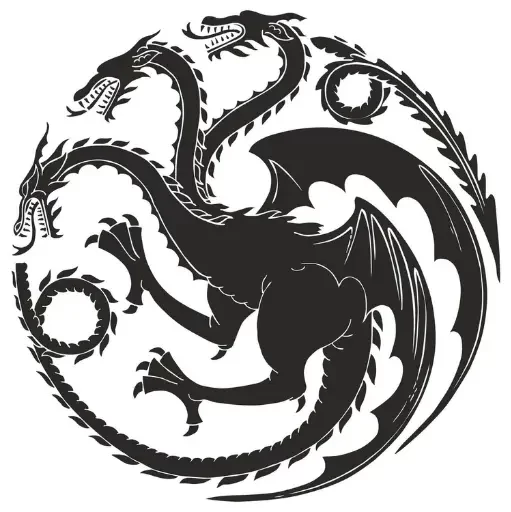Duel of the Cargyll Twins
The upheaval of the Dance spared not even the Kingsguard. Upon the demise of King Viserys I, the seven sworn brothers found their unity shattered. Ser Lorent Marbrand and Ser Erryk Cargyll, already stationed at Dragonstone, aligned themselves with Rhaenyra and her supporters.
Back to the Main Article: Dance of the Dragons Explained
Later, they were joined by Ser Steffon Darklyn, forming the core of her new Queensguard. In stark contrast, the remaining four—Ser Criston Cole, Ser Arryk Cargyll, Ser Rickard Thorne, and Ser Willis Fell—pledged their loyalty to Aegon II and the greens in King’s Landing. Luceon of Tarth would immortalize the separation of the Cargyll twins in the mournful ballad “Farewell, My Brother.”
Aegon II, consumed by a thirst for vengeance following the loss of his heir, contemplated a direct assault on Dragonstone, riding atop the fearsome Sunfyre to seize or slay his half-sister and her supposed “bastard sons.” The green council, however, swayed him from this impetuous course. Ser Criston, retaining his position as Lord Commander of the Kingsguard, proposed a strategy of subtlety and deceit, akin to the methods employed by the “pretender princess” herself.
Ser Criston entrusted Ser Arryk with a covert mission: infiltrate Dragonstone in the guise of his twin brother, Ser Erryk. The specifics of his mission remained obscured by conflicting accounts. Some claimed he was tasked with eliminating Rhaenyra, while others insisted his target was her children, Jacaerys and Joffrey, who were believed to be fathered by her alleged paramour.
Discrepancies persisted in the records. Eustace asserted that Ser Arryk sought forgiveness in the Red Keep’s sept, while Munkun maintained Rhaenyra was the target. Mushroom, ever colorful in his accounts, insisted it was her sons, Jacaerys and Joffrey “Strong.”
Fate, however, intervened in the halls of Dragonstone’s citadel. The Cargyll twins unexpectedly crossed paths and engaged in a lethal duel. Conflicting narratives emerged from the confrontation. Songs of lamentation romanticized their clash, depicting a tragic scene where the brothers professed their love amidst the clash of swords, succumbing to mortal wounds in each other’s arms after an hour of battle, their hearts unwavering in their duty.
Mushroom, in stark contrast, claimed the brothers condemned each other as traitors, both succumbing to mortal wounds within moments of the duel’s onset. Regardless of the true account, the Dance of the Dragons had claimed even the most steadfast of knights within its relentless grasp.
